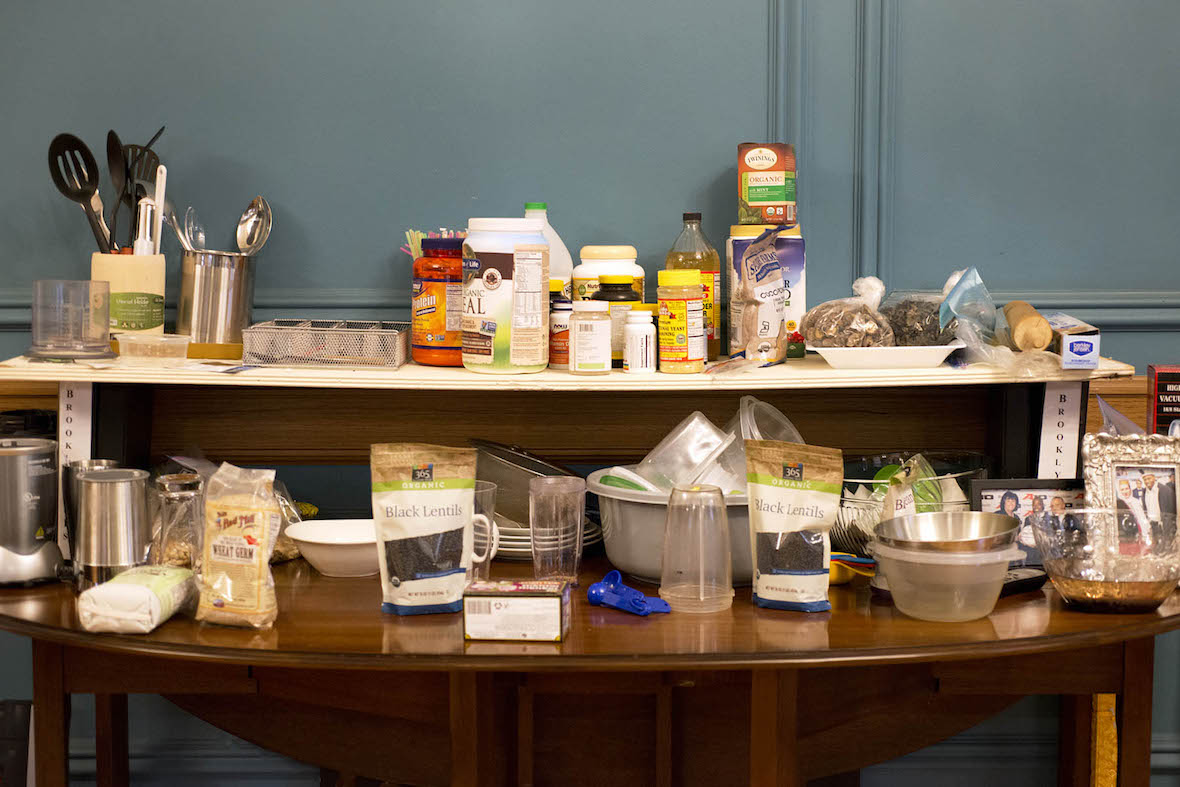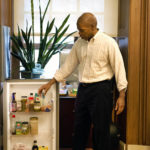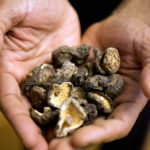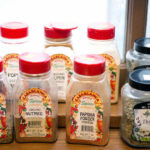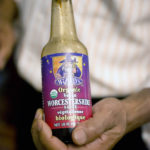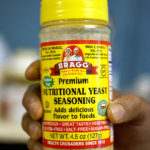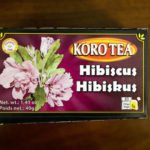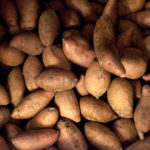
“Taste this. It tastes just like cheese,” says Brooklyn Borough President Eric L. Adams, holding a canister of Bragg’s nutritional yeast toward me. We’re in his office at Borough Hall, exploring the huge range of spices, dried mushrooms, fruits and vegetables he stocks. About a year ago, Adams transitioned to a vegan diet. Now a good chunk of his massive office serves as a kitchen. Careful on your way to the small room that holds his exercise equipment: You might trip over the boxes of apples and sweet potatoes.
Many people would love to change how they eat to better their health, but few show as much commitment as Adams. When his doctor diagnosed him with type 2 diabetes last year, he made the decision and hasn’t looked back.
The Brooklyn native spent 22 years in the New York Police Department and started the organization 100 Blacks in Law Enforcement Who Care, an advocacy group, then served seven years as a state senator in Albany before being elected to this office in 2013—becoming the first African-American to hold the position. The borough president has a role akin to a county executive in other areas of the country: This office has a voice on land use, building structure, the appointment of community board members and making sure all government departments are receiving their deserved resources (his administration committed $1 million in capital funding to go toward the creation of an urban ag incubator, space still to be determined). Now that he’s vegan, he’s also making sure he uses his position to speak about how the food you eat can affect your health.
Growing up on the standard American diet
I ate the traditional American diet—everything from hot dogs to hamburgers to fast food to pizzas. You start out eating anything that’s put in front of you, then you become more selective later in life. I was always health-conscious; I was a person who played football, basketball and baseball. But my diet consisted of whatever I could get my hands on: Chinese food, Italian food.

Making the switch
I was diagnosed with type 2 diabetes in April of 2016, and I saw the doctor who treated Bill Clinton for his heart disease. He told me that diabetes and many ailments are directly related to the food we eat, and if I changed my diet I could actually reverse my diabetes without taking any medicine. He told me it should be a plant-based diet, and after doing research, I started to see the same conversation about ailments and food. There was a common denominator that doctors had agreed on: The plant-based diet was not only better to reverse conditions, but for your overall health. I said, “You know what? I’m not a doctor but I’m good at doing research, and the research is what it is.” So I decided to give this a try.
Veganism isn’t as tough as it looks
I’m extremely disciplined. It comes from my police background. Once I decide I want to do something, there’s really no challenge. I was a lover of ice cream. I was a pastry nut. I had a sweet tooth—we all do. Later I found out that sugar is as addictive as any drug. But once I decided that this is what I wanted to do, after two weeks, there was no looking back. The cravings disappeared.
But not everyone understands
In any business as an elected official, you’re constantly around food. Just yesterday I had three dinners that I attended with meetings. Sometimes people are offended because you’re not eating and they want to compel you to eat, but once you explain and do it in a good way, they understand. I’m not the type of person to come in and say, “You shouldn’t be eating that.” Eat what you want. I’m not going to decide what you put on your plate, so don’t decide what I put on my plate.
People are amazed sometimes because they know how I used to eat and how I eat now. I have no desire to consume some of the foods I ate before, so it can become challenging for those who haven’t adjusted. But now it’s basically known: “This is what Eric is gonna do.” For any group, food is really the magnet keeping people together, and sometimes they really feel offended when you’re not eating.
Inviting important conversations
Many people sit down after the meal and say to me, “I’m going through some health challenges as well.” It’s amazing how many people around us are going through health challenges, and they’re just silently suffering. They ask, “Where’d you get that information? I want to start exploring living a healthy lifestyle. I’m tired of feeling guilty after I finish a meal. I want to feel healthy after I finish a meal.”

How diet restrictions can open up your food world
It’s very fascinating how much my diet was limited before. Monday was meatloaf; Tuesday was salmon—when I really did an analysis, I realized that my diet was limited to six or seven dishes that I rotated throughout the week. If someone would’ve told me in past years that I wouldn’t be eating steak or lamb chops, I would’ve said, “Just give me the disease.” But now it’s unbelievable.
At breakfast, I do my own cereal of flax, hemp and chia seeds, with fruit and unsweetened soy milk. For lunch, I do kale, broccoli, mushrooms and spices—I’m big on spices, and I don’t use salt at all. Dinner is the same. I just try to be creative. I know my taste buds and make a mean hummus out of sweet potatoes and chickpeas. One of my best friends is the Ninja blender. I make chips with chia seeds when I want something crunchy; I make ice cream from frozen bananas.
Sunday is my test day—I call it my “research and development day.” I come up with new combinations and write them down in my book. I never used to cook before, and now I have about 40 or 50 different recipes.

Can you make it work with a politician’s schedule?
My life now is built around my food. It’s optional now, but if I don’t take care of myself, it won’t be optional. Everyone knows, my meals come first. If you want to come sit down and talk to me while I’m chopping up my celery, do so. It’s about taking care of me. I really enjoy the therapeutic value of making the meal and saying, “I’m getting ready to eat this carrot and it’s gonna be part of my healing process. This kale that I’m chopping up is gonna be part of making me healthy.” I love the experience of making my food.
Toward a healthier Brooklyn
We’re putting a large amount of dollars into schools with gardens that are teaching young people how to grow vegetables and lead healthy lifestyles. At senior centers, we have diabetes awareness. We have a “cut the salt, curb the sugar” campaign—a preventative health program in partnership with the New York City Department of Health and Mental Hygiene. We’ve created an entire policy at Borough Hall: When we host an event, there is a list of items that are allowed to be served. It’s about leading by example, leading from the front.


